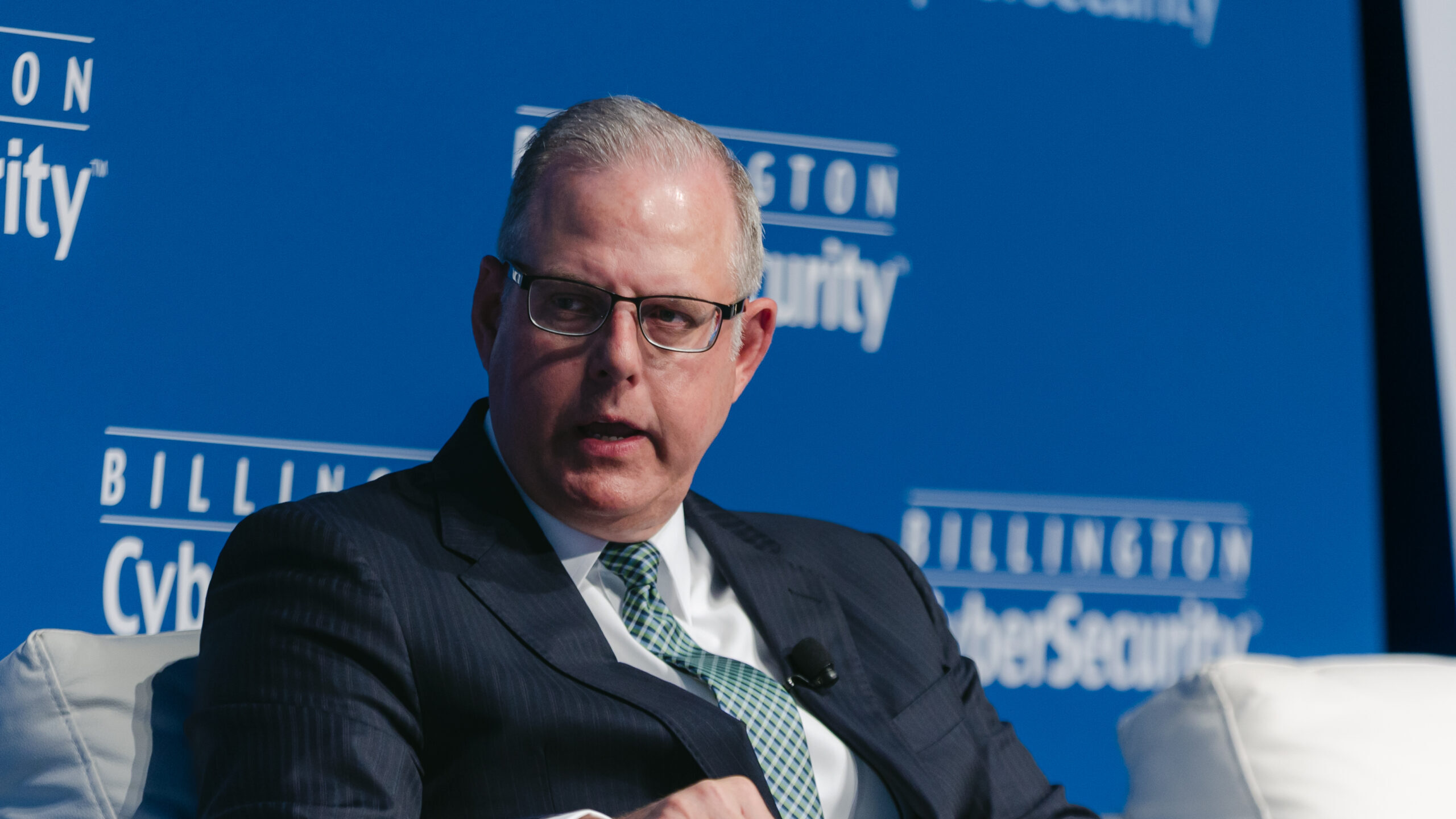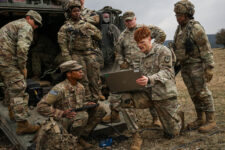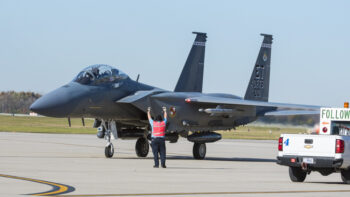
Department of Defense Chief Information Officer John Sherman speaks at the 14th annual Billington CyberSecurity Summit (Photo courtesy of Billington CyberSecurity Summit)
DoDIIS 2023 — One year after awarding vendors a spot on the Joint Warfighting Cloud Capability, the Pentagon is already looking at the second iteration of the contract vehicle and could make its first moves on the follow-up next year, the department’s chief information officer said today.
“We are, in calendar year of 2024, going to start looking at the follow-on contract for JWCC,” John Sherman said at the Department of Defense Intelligence Information System, or DoDIIS, conference. “When we announced JWCC, it’s a three-year base with two option years, and we’re already into the one-year base of this. And we’ve said all along, in ‘24, that timeframe, we’re going to start looking at what comes next.”
Sherman said that there is no set timeline for when the department will release a request for information for JWCC 2.0 or when any more information on the effort will roll out next year, but added that DoD was “firmly committed to multi-cloud, multi-vendor, and this is what we’re going to be doing going forward.”
Last December, Google, Microsoft, Amazon Web Services and Oracle were all awarded a share of JWCC, which is worth up to $8 billion, to essentially build the sprawling military’s data cloud.
“It brings us really cutting-edge cloud capabilities, to the entire department here,” Sherman said at the time of the contract. “Very importantly, it brings us cloud computing at all three security classification levels: unclassified, secret and top secret.”
Today, Sherman said DoD has awarded nearly 40 task orders worth $270 million across all three security classifications: top secret, secret and unclassified.
One month after making the initial JWCC awards, Sherman told Breaking Defense in an interview that he would be issuing guidance to the military services to ensure getting the best mission outcome and value for its dollar. At the time, he said his intent wasn’t to override the individual cloud efforts within the services themselves.
In August, the guidance was signed out and laid out the conditions for how the services and entire department should leverage JWCC “to the greatest extent possible.”
But the individual military services aren’t mandated to use JWCC, and service officials have described to Breaking Defense an uneven approach to the program so far. The Army, for instance, told Breaking Defense it is piloting two programs through JWCC, while the Navy said there are plans for JWCC to be used in Marine wargaming offices, and will support Marine cyber operations.
The Pentagon has made cloud computing a key part of its Joint All Domain Command and Control efforts, which is designed to get key information from sensors to decision makers and warfighters as quickly as possible — but presents all kinds of complications for data sharing and bandwidth.






















